Search
Remove Ads
Advertisement
Summary 
Loading AI-generated summary based on World History Encyclopedia articles ...
Search Results
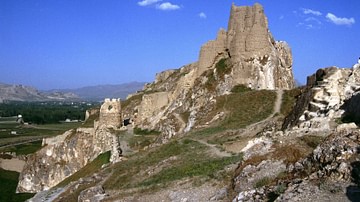
Definition
Tushpa
Tushpa, later known as Van, was the capital of the Urartu kingdom of ancient Armenia, eastern Turkey, and western Iran from the 9th to 6th century BCE. Located on the eastern shore of Lake Van in modern Turkey, the city was a fortress site...

Image
Tushpa/Van
The citadel of Tushpa (Van), capital of the ancient kingdom of Urartu (9th-6th century BCE) and later Armenian kingdoms. Lake Van, eastern Turkey.
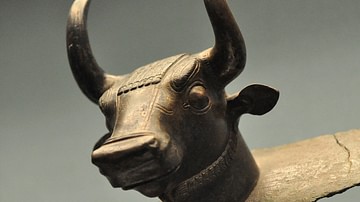
Definition
Urartu Civilization
Urartu, also known as the Kingdom of Urartu or the Kingdom of Van, was a civilization which developed in the Bronze and Iron Age of ancient Armenia, eastern Turkey, and northwestern Iran from the 9th century BCE. Controlling territories through...
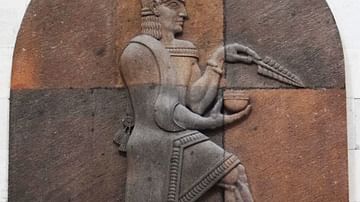
Definition
Urartu Religion
The religion of the Urartu civilization, which flourished principally in ancient Armenia from the 9th to 6th century BCE, was a unique mix of indigenous, Hurrian and Mesopotamian gods and symbolism. The pantheon was headed by the trinity...
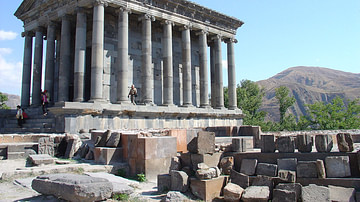
Definition
Ancient Armenia
Ancient Armenia, located in the south Caucasus area of Eurasia, was settled in the Neolithic era but its first recorded state proper was the kingdom of Urartu from the 9th century BCE. Incorporated into the Persian Empire of Cyrus the Great...
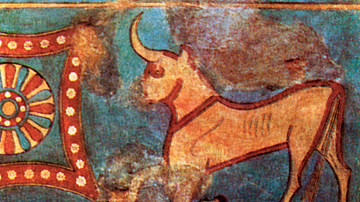
Definition
Urartu Art
The art produced by the Urartu civilization, which flourished in ancient Armenia, eastern Turkey, and northwestern Iran from the 9th to 6th century BCE, is best seen in bronze figurines of deities, bronze cauldrons with animal and goddess...
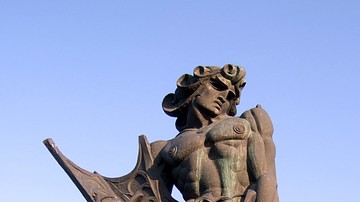
Definition
Armenian Mythology
The mythology of ancient Armenia is a rich blend of indigenous traditions with imported ideas from neighbouring cultures and migrating peoples added over the centuries. The legends and stories helped to explain natural phenomena, provide...
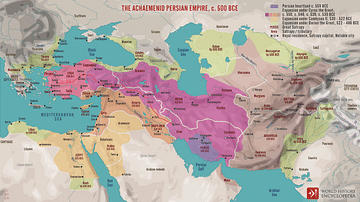
Definition
Achaemenid Empire
East of the Zagros Mountains, a high plateau stretches off towards India. While Egypt was rising up against the Hyksos, a wave of pastoral tribes from north of the Caspian Sea was drifting down into this area and across into India. By the...
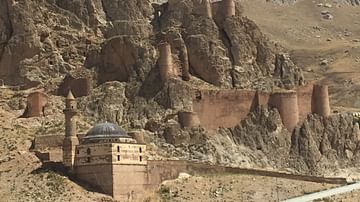
Image
Urartian Fortress & Tomb
The ruins of this fortress (Bayazit Kalesi) and tomb date back to the 9th century BCE Kingdom of Urartu just outside present-day Dogubayazit, Turkey. The Kingdom of Urartu was centered in modern-day eastern Turkey, southwest Armenia, and...
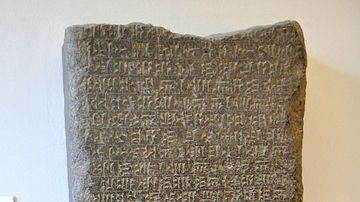
Image
Stele of the Urartian King Rusa II
The inscription on this stele narrates the foundation of a small residence, Rusachinili, near the Urartian capital, Tushpa, and about its water supply (irrigation canals and dam) by the Urartian king Rusa II. Circa 685-645 BCE. From Keshish-Gol...